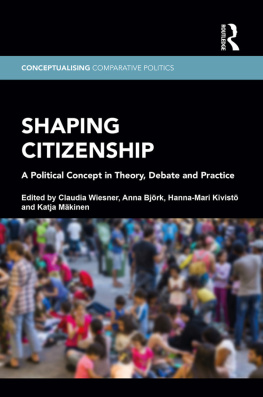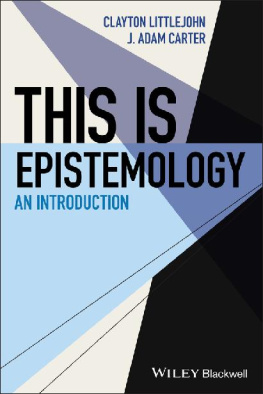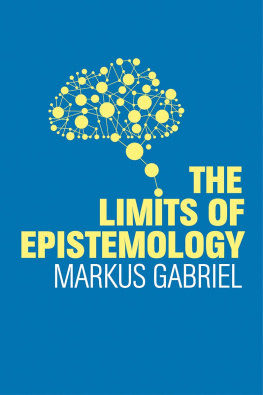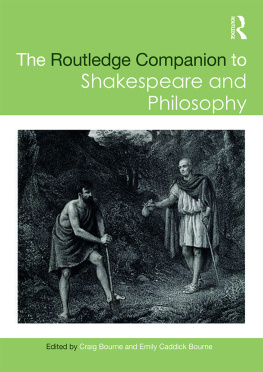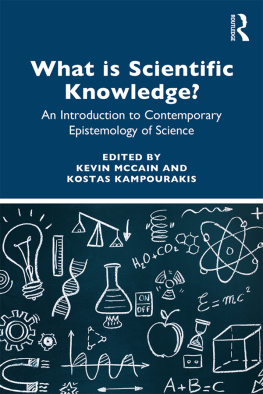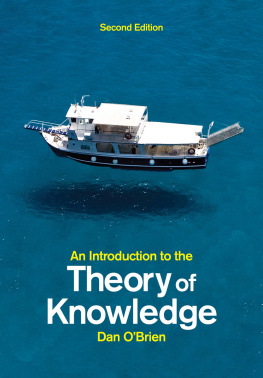
Craig, Edward University Lecturer in Philosophy and Fellow of Churchill College, Cambridge
Knowledge and the State of Nature
An Essay in Conceptual Synthesis
Publication date 1999 (this edition)
Print ISBN-10: 0-19-823879-7
Print ISBN-13: 978-0-19-823879-9
doi:10.1093/0198238797.001.0001
Abstract: This book is an inquiry in epistemology directed at understanding the concept of knowledge. Its point of departure is that the standard philosophical project of analysing the concept of knowledge arbitrarily restricts the subject matter and is based on risky theoretical presuppositions. Craig develops an alternative approach, akin to the 'state of nature' method in political theory, which builds up the concept from a hypothesis about the social function of knowledge and the needs that it fulfils. Included in Craig's attempt to understand the concept is the endeavour to explain, in the light of his own theory, much that philosophers have written about knowledge, its analysis, the obstacles to its analysis, and scepticism. Moreover, the book aims to show not only why many languages have such constructions as 'knows whether' and 'knows that' but also why they have equivalents of 'knows how to' and 'know' followed by a direct object.
Keywords: analysis,conditions for knowledge,epistemology,justification,knowledge,scepticism,state of nature,true belief
Knowledge and the State of Nature
end p.i
end p.ii
Knowledge and the State of Nature
An Essay in Conceptual Synthesis
CLARENDON PRESS OXFORD
end p.iii

Oxford University Press, Great Clarendon Street, Oxford OX2 6DP
Oxford New York
Auckland Bangkok Buenos Aires Cape Town Chennai
Dar es Salaam Delhi Hong Kong Istanbul Karachi Kolkata
Kuala Lumpur Madrid Melbourne Mexico City Mumbai Nairobi
So Paulo Shanghai Taipei Tokyo Toronto
Oxford is a registered trade mark of Oxford University Press
in the UK and in certain other countries
Published in the United States by
Oxford University Press Inc., New York
Edward Craig 1990
The moral rights of the authors have been asserted
First published 1990
First issued as paperback 1999
All rights reserved. No part of this publication may be reproduced,
stored in a retrieval system, or transmitted, in any form or by any means,
without the prior permission in writing of Oxford University Press,
or as expressly permitted by law, or under terms agreed with the appropriate
reprographcs rights organization. Enquiries concerning reproduction
outside the scope of the above should be sent to the Rights Department,
Oxford University Press, at the address above
You must not circulate this book in any other binding or cover
and you must impose this same condition on any acquirer
British Library Cataloguing in Publication Data
Data available
Library of Congress Cataloging in Publication Data
Craig, Edward.
Knowledge and the state of nature: an essay in conceptual synthesis / Edward Craig.
Includes bibliographical references.
1. Knowledge, Theory of. 2. LanguagesPhilosophy. I. Title.
BD161.C67 1990 121dc20 90-34414
ISBN 0-19-824243-3
ISBN 0-19-823879-7 (Pbk.)
end p.iv
end p.vi
Acknowledgements
I am grateful to many students, colleagues, and friends from various universities in Britain and Germany for their interest in and comments on earlier versions of parts of this monograph. My principal debts can be gathered from the text itself. A number of people have given me the benefit of their native-speaker's expertise over the linguistic data that I refer to in Sections . Their generous help is much appreciated.
Particular thanks are due to the Leverhulme Trust for enabling me to devote a large part of the year 1986-7 to this project. How much longer it would have taken to reach the present state without such assistance, or whether it would ever have been reached at all, I can only guess.
Finally, my thanks to the editor of the Proceedings of the Aristotelian Society for permission to re-use material which appeared in Vol. LXXXVII.
Churchill College, Cambridge
E.J.C.
end p.vii
end p.viii
Contents
I | Nature and motivation of project. Doubts answered. Plato, Pears, Hobbes, comparison with State-of-Nature Theory in Political Philosophy. Evolutionary epistemology. |
II | Derivation of first condition; the problem whether belief necessary. Necessary and sufficient conditions an unsuitable format. The prototypical case. |
III | Need for third condition. Discussion of the Nozick-Dretske analysis. |
IV | Why causal theory, tracking, reliabilism all good approximations. Why justified true belief a good approximation. Comparison with Grice. |
V | Distinction between Informant and Source of Information; its nature and point. Application to putative 'knowledge without belief' cases; and to comparativism: Goldman. |
VI | Being right by accident. All analyses insufficient. Blackburn: the Mirv/Pirv principle. |
VII | Local v. Global Reliabilism. Discussion of McGinn. |
VIII | Externalist and Internalist analyses. The first-person case. Knowing that one knows. |
IX | Insufficiency of the various analyses. The 'No false lemma' principle. Its rationaleand its effect. |
X | Objectivisation. The 'cart before the horse' objectionand the response. |
XI | Lotteries and multiple premises: the pull towards certainty. Knowledge and natural laws. |
XII | Objectivisation and scepticism. Unger's first account. |
XIII | Two explanations of scepticism: the first-person approach, and the absolute perspective. |
end p.ix
XIV | Knowledge and involvement. What makes truth valuable? |
XV | Testimony and the transmission of knowledge. Welbourne: believing the speaker. |
XVI | Other locutions: Knowing Fred. Information v. acquaintance. Interacting with Fred. Knowing Londonand German. |
XVII | Other locutions: Knowing how to. The Inquirer and the Apprentice. 'Knows how to' compared with 'can'and with 'knows that'. |
Appendix | Unger's Semantic Relativism |
References |
Index of Names |
end p.x
I
Abstract: Raises two problems for the standard approach to the concept of knowledge, which consists in attempting to provide an analysis in terms of necessary and sufficient conditions. First, it is difficult to make intuitive 'extensional' ascriptions of knowledge mesh with 'intensional' intuitions about what makes for knowledge. Second, the approach gives no answer as to why the concept of knowledge enjoys such widespread use and to which needs of human life and thought it answers. The suggested alternative approach is the naturalistic one of practical explication, i.e. to start with a reasoned hypothesis about the answer to this last question by considering the state of nature, and then to ask what conditions would govern the application of such a concept.



